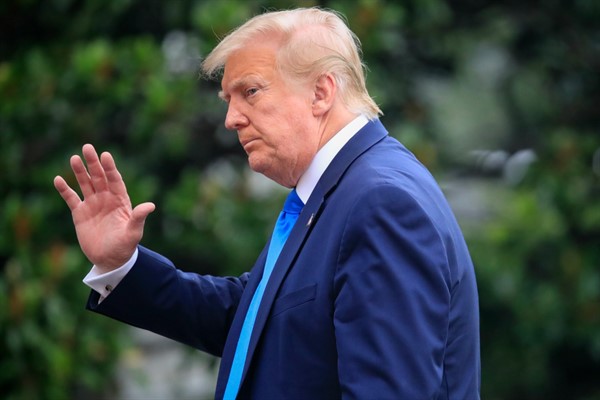Editor’s Note: WPR editor-in-chief Judah Grunstein is filling in for Kimberly Ann Elliott this week.
Should the four-year-long polar night of Donald Trump’s presidency come to a definitive end this November, most observers of his catastrophic handling of U.S. foreign policy will rejoice. After all, Trump has done significant damage to America’s national interests—and has done so in a uniquely corrosive way. He has undermined America’s alliances and partnerships while emboldening its adversaries, all in pursuit of an ad hoc, incoherent and personalized foreign policy devoid of strategic planning. Meanwhile, he has overseen domestic shifts that leave the U.S. more closely resembling the foreign nations it has long criticized, backsliding on democratic norms and the rule of law at home, while retreating as an advocate of human rights abroad.
But amid the rejoicing, would there be anything at all about Trump’s handling of foreign policy worth saving? The answer is yes, although not without major adjustments. Four aspects, in particular, stand out, all of which require a more skillful leader to put them to good use. But in its eagerness to close the book on the Trump era, the next administration would do well to avoid the temptation of throwing them out with the rest of the Trump playbook.

